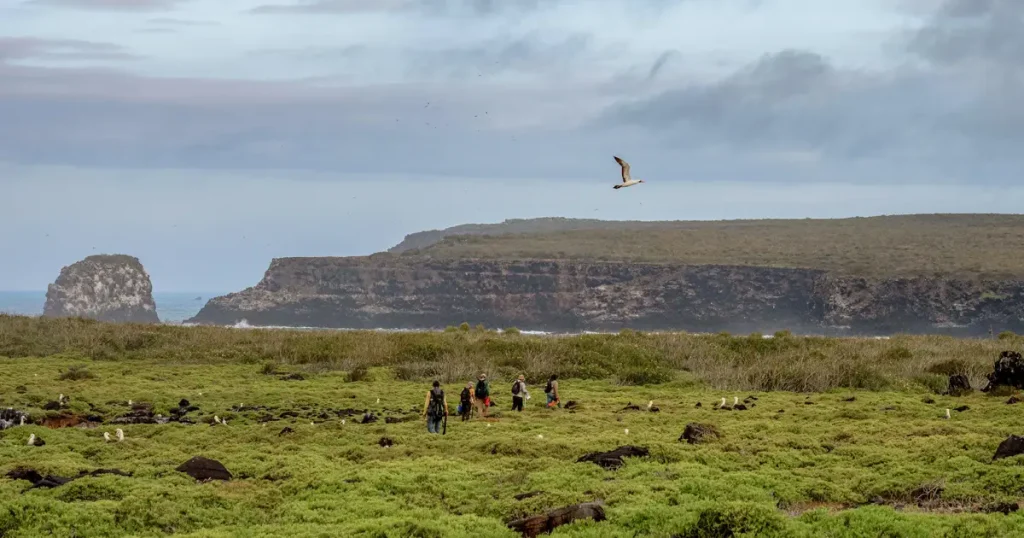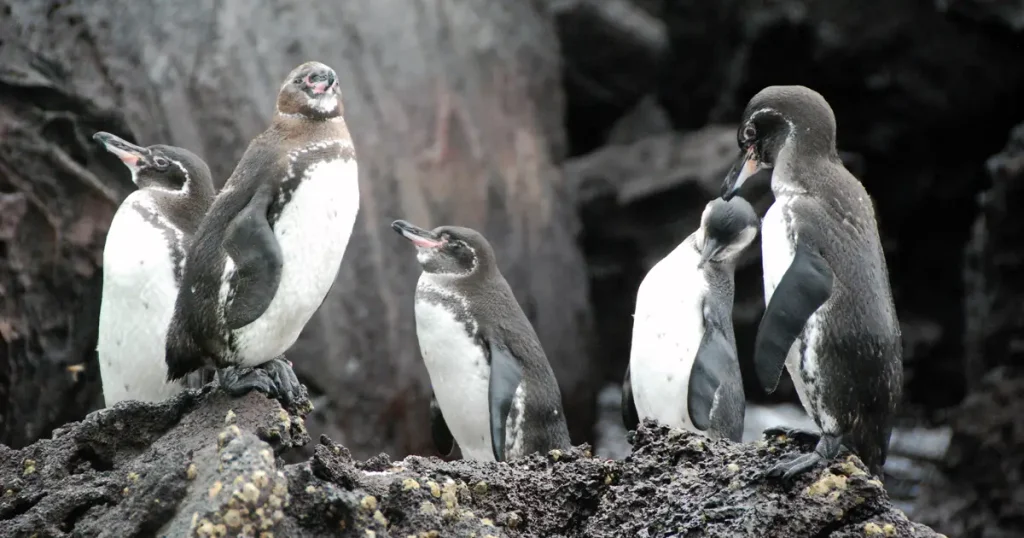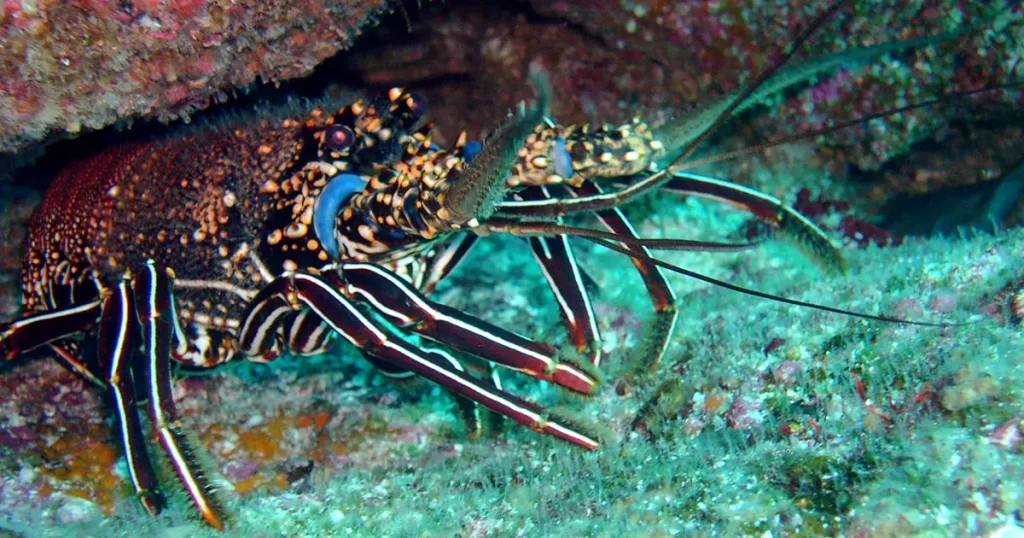The Enigma Beneath the Waves: Protecting Whale Sharks in Galápagos
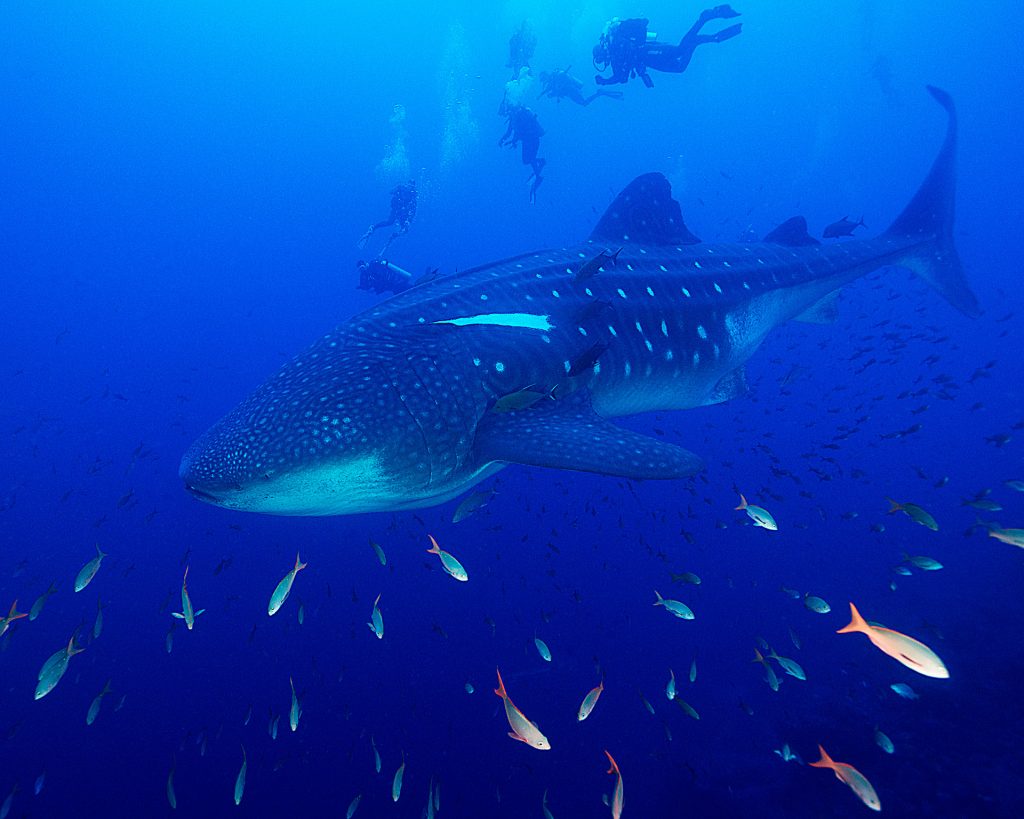
The majestic whale shark
In the depths of the azure waters surrounding the enchanting Galápagos Archipelago, a marine enigma unfolds that has captivated explorers and nature enthusiasts alike. The story of the majestic whale shark, mysteriously drawn to these waters, is one of dedicated research and the resolute mission to conserve an iconic species.
Whale shark (Rhincodon typus)
Is the world’s largest fish and can surpass the size of a bus. Its distinctive skin is adorned with exceptional white spots, creating a unique pattern akin to marine fingerprints. This majestic being inhabits tropical waters around the globe, leaving an indelible impression on those fortunate enough to encounter it.
The mystery
Yet behind their majesty lies an intriguing mystery. Galápagos whale sharks hold a secret, researchers are working to unravel: 99% of the whale sharks visiting these waters are females and seemingly pregnant. This indicates the islands play a crucial role in conserving this species. From July to September, whale sharks embark on a journey to Galápagos in what appears to be a lengthy migration. The waters of Galápagos harbor the expectant mothers, which entrust us to safeguard their habitat and ensure the future of their species. This astonishing revelation has ushered in a new era of research and conservation, and this is where Galápagos Conservancy comes into play.
In 2021 and 2022
Galápagos Conservancy joined researchers Jonathan Green and his daughter Sofía on a mission to understand the life and reproduction of whale sharks in the archipelago. The goal was clear: unveil the secrets of these majestic creatures and contribute to securing their survival.
The Dr. Jorge Carrión
Our Director of Conservation, pointed out that beyond their beauty and rarity, whale sharks are classified as Endangered on the International Union for Conservation of Nature (IUCN) Red List. The study of these giants offers an opportunity to understand the ecological significance of their presence in the archipelago. “This research effort cannot be overstated; studying this species is essential for its conservation,” he emphasized.
The equilibrium
Every endeavor to study and conserve whale sharks is crucial for ensuring marine equilibrium in the archipelago. The whale shark, a keystone species of the seas, plays a vital role in marine ecosystems. Its presence regulates the population of prey species, maintaining balance in the marine food chain. Furthermore, its migratory behavior contributes to the circulation of nutrients in the oceans, influencing the productivity and health of marine ecosystems worldwide.
Protect and save this species
It’s essential that all of us, as guardians of our planet and nature lovers, commit to protecting these magnificent creatures for generations to come. Every effort we make to safeguard these majestic animals will impact their survival and the health and resilience of ocean habitats crucial to life on Earth. By uniting in this noble cause, we can ensure that future generations can admire and benefit from the richness and beauty of the seas and their inhabitants, including the astounding whale shark.
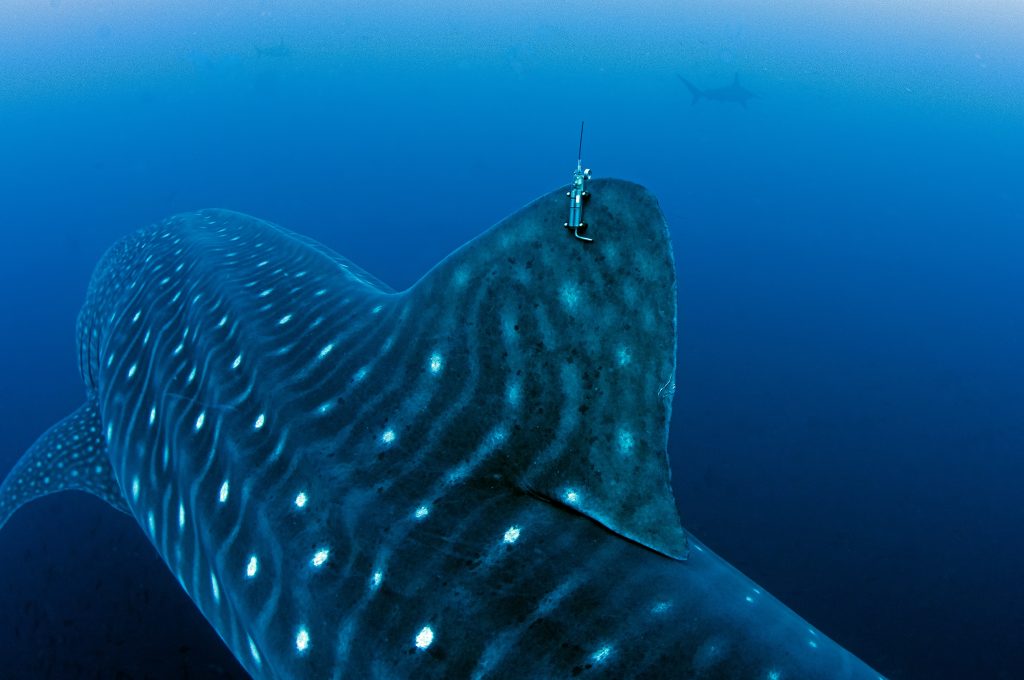
Whale Shark Day
“Every August 30, International Whale Shark Day provides us with an opportunity to highlight the vital importance of conserving this magnificent species,” Carrión remarked. We invite you to join us on this invaluable mission, ensuring a future where whale sharks gracefully glide through the waters we cherish and share.
